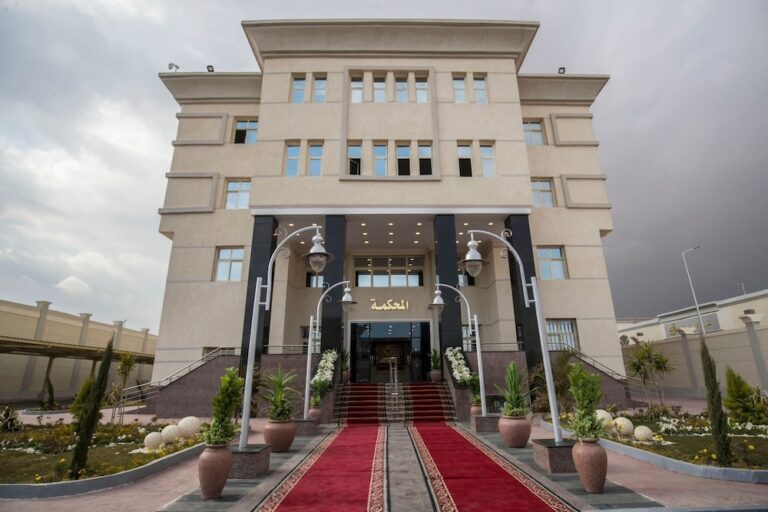(EOHR/IFEX) – The following is an EOHR press release: In the Face of Cultural Violence The Organization denounces incitement against writers and artists. The EOHR expresses its alarm over the apostatizing campaign against two writers published by the Ministry of Culture, those being the Syrian novelist Haider Haider, author of the novel Feast of the […]
(EOHR/IFEX) – The following is an EOHR press release:
In the Face of Cultural Violence
The Organization denounces incitement against writers and artists.
The EOHR expresses its alarm over the apostatizing campaign against two writers published by the Ministry of Culture, those being the Syrian novelist Haider Haider, author of the novel Feast of the Sea Algae, and the Egyptian novelist and critic Edwar Al Kharrat, author of the book Poetry of Modernity in Egypt. This campaign has extended to include the officials of the Ministry of Culture, and the organization regrets the discourse used in this campaign of accusations of apostasy and treason, which has reached the extent of direct and clear incitement to assault artists and officials by publishing their addresses in one of the newspapers.
The EOHR is aware of the sensitivity of the relationship between artistic and literary works on one hand, and religion and politics on the other. This relationship over the ages has been the basis of grave violations of the rights of persons of letters and words specifically, and of political liberties in general. The organization believes that the judgement of literary and creative works on religious or political grounds threatens to impose religious or political custodianship on human thought, especially since experience has proved that religion and politics are always subject to different interpretations by those who try to impose custodianship.
However, what has caused the gravest alarm to the organization is the violence of the discourse of the critics of these literary works, and the organization fears that the cultural and intellectual debate takes the direction to what we might call cultural violence, which could erupt into bloody political violence, especially since previous experience has proven that a number of writers and artists who were exposed to similar campaigns ended up as victims of physical violence, which cost some of them their lives. The assassination of the secular thinker Farag Foda and the attempts to assassinate novelist Naguib Mahfouz and journalist Makram Mohammed Ahmed are not far from our memory. It should be noted that the investigation of these previous cases proved that the perpetrators had never read the works of their victims, but were incited by discourse similar to that of which we warn now.
The organization expresses its alarm about this apostatising campaign on the grounds that the right to free expression and literary, artistic, and cultural creativity are constitutional rights that have to be respected and safeguarded, and calls upon intellectuals and civil society to work against these apostatising campaigns to put an end to this growing phenomenon of cultural violence, and urges the state to carry out its duty to protect freedom of expression, belief, literary and artistic creativity.


